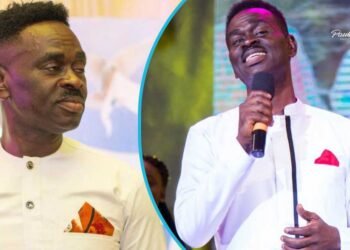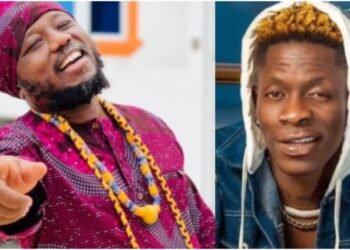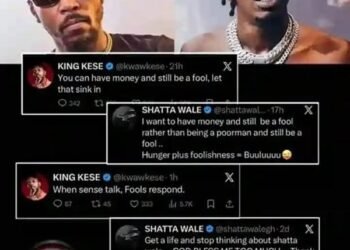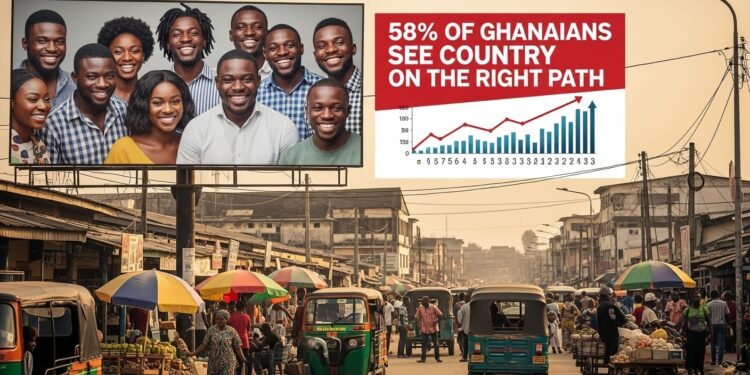Urban gospel is a dynamic and multifaceted genre that combines gospel music’s rich traditions with contemporary urban sounds, including hip-hop, R&B, and pop.
It reflects the lived experiences of urban communities and addresses themes of faith, struggle, hope, and resilience.
The recent reforms in the Telecel Ghana Music Awards (TGMA) have sparked conversations, particularly with introducing a new urban and contemporary gospel category.
The new TGMA category dubbed Urban/Contemporary Song of the Year, has been largely embraced by musicians within the urban gospel community.
However, some industry personalities such as Caleb Nii Boye, Roland Amartey (on Sammy Flex TV), and Ezekiel Tetteh, have expressed their disapproval about the new category, arguing that the Board should have rather focused on the Reggae/Dancehall Song category, by separating the two genres so ‘Dancehall’ and ‘Reggae’ would stand independently.
In the meantime, the curator of Urban Gospel Rave, Joseph Smart Amenuveve Kwodwo, popularly known as JSmart, believes the arguments against the introduction of the new gospel category are baseless.
Taking to his social media platforms, JSmart highlighted the significant progress and contributions of Urban Gospel artists in Ghana over the past year.
“Within the period of 2024, Urban Gospel recognized over fifty artists churning out songs, not just releasing them but following up with proper promotions. Among these fifty individuals were others who produced more than two songs and even full albums.”
JSmart
He provided specific examples, citing songs like Kobby Psalms’ ‘Never Forget,’ H. Hardy’s ‘Alive,’ Scott Evans’ ‘Grateful,’ Raf Able’s collaboration with Cwesi Oteng on ‘You No Dey See,’ Quabena Asare’s ‘Radical For Christ,’ and Team Eternity’s ‘Defe Defe.’
He further mentioned Seth Diamond and Joseph Matthew as part of the movement creating impactful music.
While comparing Urban Gospel to Dancehall, JSmart asked which dancehall songs readily come to mind as releases in 2024.
He argued that Urban Gospel artists have not only been consistent but have also heavily invested in their craft.
“Look at the investments these guys are making, the quality of songs and visuals they put out. We have Scott Evans traveling overseas just to record. Jonn Winner is traveling to Dubai and South Africa to shoot visuals.
“Apart from Stonebwoy, Shatta Wale, and maybe Samini, which other Dancehall artiste even knows where our local airport is? These are what we call investments and competition.”
JSmart
The lyrics of urban gospel songs often address real-life issues faced by individuals in urban settings. Themes such as love, social justice, personal struggles, and faith are prevalent.
This relatability allows listeners to connect with the music on a personal level, making it a powerful tool for ministry and outreach.
Urban gospel performances are often high-energy and engaging. Artists utilize choreography, visual effects, and interactive elements to create an immersive experience.
This vibrant performance style attracts younger audiences and encourages participation.
Several artists have played a pivotal role in shaping the urban gospel genre.
Often regarded as the pioneer of urban gospel, Kirk Franklin’s innovative approach combines choir traditions with hip-hop influences.
His albums, such as “God’s Property” and “The Rebirth of Kirk Franklin,” have garnered critical acclaim and commercial success.
Mary Mary. this sister duo blends contemporary R&B with gospel, producing hits like “Shackles (Praise You)” that resonate with both secular and religious audiences.
Their music addresses personal struggles while celebrating faith and empowerment.
Cultural Significance

Urban gospel serves as a vital cultural expression within the African American community and beyond. It provides a platform for discussing social issues, such as poverty, racism, and inequality, while offering hope and encouragement.
The genre resonates with younger generations who seek authenticity and relevance in their spiritual journeys.
Moreover, the urban gospel has fostered a sense of community and belonging. Through concerts, events, and social media, artists and fans connect, sharing their experiences and supporting one another.
This communal aspect reinforces the genre’s message of love, unity, and faith.
JSmart pointed out the prominence of Urban Gospel artists on major event platforms. “Event-wise, these Urban Gospel artistes are headlining their own events and mounting other big stages that Dancehall artists can’t go near to,” he stated.
JSmart has, therefore, commended the TGMA Board for creating the new gospel category.
Urban gospel is more than just a musical genre; it is a vibrant expression of faith that reflects the complexities of modern life.
By blending traditional gospel with contemporary urban sounds, artists create a powerful narrative that resonates with diverse audiences.
As urban gospel continues to evolve, it remains a vital force in both the music industry and the broader cultural landscape, inspiring individuals to embrace their faith and navigate the challenges of life with hope and resilience.
READ ALSO: Payroll Audit Timely and Essential for Transparency- Dr. Asekere























